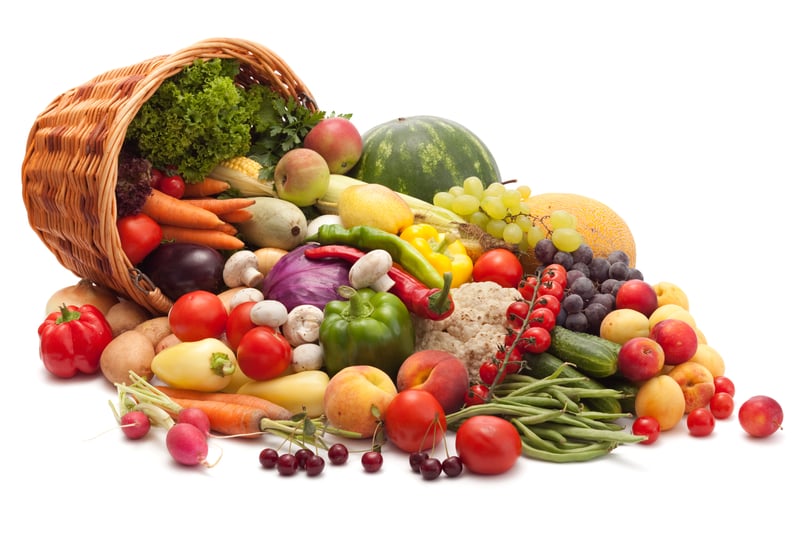Managing Menopause: Embracing Change with the Right Foods

If you’re reading this article, I’m sure I don’t have to tell you that menopause ushers in significant changes in virtually every woman’s life. It often brings a mix of relief and some surprising challenges. This natural phase in our lives doesn’t just signify the end of menstrual cycles (which many celebrate); it also introduces a wide range of physical and emotional changes. Managing all this change can feel overwhelming. Fortunately, there are steps we can take to make a notable difference. And that includes eating foods to manage menopause.
What Is Menopause?
The basic definition of menopause is the end of a woman’s reproductive years. It’s officially diagnosed after a 12-consecutive month stint without a menstrual cycle, and it typically happens between the ages of 45 and 55, though some women experience it at younger or older ages.
Before women reach menopause, there is a transition period known as perimenopause that can last several years, starting as early as the mid to late 30s. It often brings about irregular menstrual cycles and or increased PMS severity. In addition, during this transition and into menopause, women can experience:
- irregular periods
- hot flashes
- night sweats
- mood swings or changes
- vaginal dryness
- sleep disturbances
- weight gain (especially around the belly)
And that’s not all. Some women might experience irregular heartbeats, a racing heart, or heart palpitations. Others find it more difficult to concentrate, or their memory doesn’t seem as sharp. Some women also experience aches and stiffness in their joints. All these symptoms vary greatly from person to person but are common with the onset of menopause. Sounds fun, right?
Menopause is a natural biological process that’s triggered by the decreased production of two key female reproductive system hormones: estrogen and progesterone. This occurs because the ovaries gradually produce lower amounts of these hormones, which are essential for regulating the menstrual cycle. As hormone levels drop, the menstrual cycle becomes irregular before eventually stopping altogether.
How long the transition lasts varies. Perimenopause can last from a few months to over a decade. The menopausal transition itself typically spans about four years. Once menopause has been confirmed, women enter postmenopausal. At this time, symptoms often continue to decrease in frequency and intensity. (Thank goodness.)
Fortunately, though, it doesn’t have to be a waiting game, hoping the symptoms go away on their own sooner rather than later. There are steps you can take to better manage symptoms. Some of the most valuable lifestyle changes include continuing to exercise regularly. A consistent exercise routine not only helps you maintain a healthy weight, but it can also improve mood and strengthen bones. Strength training and weight-bearing exercises (such as walking or jogging) can be particularly beneficial.
Getting good quality sleep is also vital to feeling your best during this transition. Because sleep can be disrupted by perimenopause and menopause, ensuring you have a regular sleep routine and creating a restful sleep environment is crucial. You may even want to add meditation, a slow pre-bed stretch or yoga session, or deep breathing exercises to promote better sleep.
Stress management tools, such as yoga, meditation, grounding, and deep breathing, may also help you better manage mood swings. In addition, embracing new hobbies and fun activities that bring you joy and help you relax can be highly beneficial. Consider forest bathing, getting into art, learning a new language or instrument, going dancing… just choose anything you enjoy.
It’s also important to stay hydrated, which can help manage symptoms like bloating or dry skin. So, keep your water nearby and sip throughout the day.
Of course, how you eat can also have a big impact on your symptoms.

Foods to Manage Menopause
Diet plays a crucial role in so much of our physical and mental health, and that also applies to menopause symptoms. Certain foods can help reduce symptoms by providing essential nutrients that have been found to support hormone balance, bone health, and overall well-being. A balanced diet that’s rich in vitamins, minerals, and phytoestrogens can help manage symptoms and improve quality of life through the transition.
Some of the best foods to consider consuming include:
- Leafy greens like spinach, kale, and broccoli are high in calcium and vitamin K, which are essential for bone health. Plus, they contain a rich array of antioxidants.
- Fatty fish, such as salmon, mackerel, and sardines, are rich in omega-3 fatty acids, which support heart health and healthy levels of inflammation, which is crucial as the risk of heart disease increases during menopause.
- Nuts and seeds, including walnuts, almonds, pistachios, chia seeds, pumpkin seeds, and flaxseeds, provide healthy fats, protein, and fiber, which can help maintain stable blood sugar levels.
- Whole grain foods like oats, quinoa, and brown rice are high in fiber, which can help improve digestion and help manage weight, along with numerous other potential health benefits.
- Berries, like blueberries, strawberries, raspberries, blackberries, and cherries, are all rich in antioxidants and vitamins that help manage menopause.
Some supplements may also provide benefits. For example, calcium, vitamin D, and omega-3 fatty acids may help address nutrition gaps and support overall health.
What about soy foods? Soy products have both enthusiastic advocates and harsh critics. Soy contains phytoestrogens, which are plant-based compounds that can mimic estrogen in the body, along with a range of other nutrients. Advocates (and research) suggest these foods may help balance hormone levels to potentially reduce symptoms like hot flashes. However, while whole-food soy products, like tofu, edamame, and tempeh, appear to be beneficial, many of the soy products (such as soy milk) available are ultra-processed and may provide minimal, if any, of the same benefits. Many of them are also loaded with added sugars, refined fats, and preservatives, which can further negate the potential benefits of soy.
On the other end of the spectrum, several foods can make menopausal symptoms worse. These include:
- Ultra-processed foods are high in sugar, salt, and refined fats, which can make some menopausal symptoms worse. For instance, they can lead to greater weight gain and mood swings.
- Caffeine, alcohol, and spicy foods can also make symptoms worse. For example, they can increase the frequency and intensity of hot flashes and night sweats for some women.
- High-sodium foods also aren’t recommended, as they can lead to bloating and potentially raise blood pressure.

Embracing Change
While many women find the challenges of menopause difficult, it’s a natural phase of life that marks a new beginning. It’s an opportunity to embrace aging and all the wisdom and experiences that come with it. Many women find that post-menopause provides a renewed sense of freedom, stability, and confidence to explore new interests and passions. It’s also a fantastic time to focus on self-care and prioritize your health.
Managing menopause through healthy diet and lifestyle choices are practical and effective ways to help not only alleviate uncomfortable symptoms but also improve overall health and well-being. By eating more nutrient-rich foods and cutting back or avoiding ultra-processed foods that can make symptoms worse, women can navigate this transition with greater ease.
Indeed, embracing this transition as a natural, celebratory phase of life can lead to a more positive, fulfilling experience. With the right approach, it’s a time of growth and renewal and can be one of the most rewarding stages of life.


